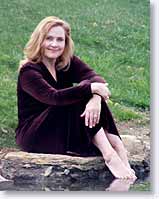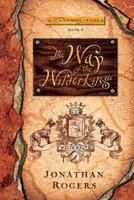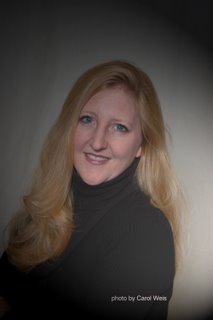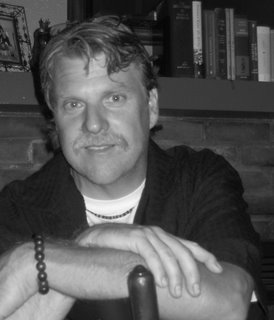Every author in some way portrays himself in his works, even if it be against his will.~ Goethe
Frank Peretti said in a recent interview that readers can tell the journey he’s been on by the books he’s written. Like Frank, when I started writing I had no clue how much of my own personality, hopes, failures, and more than anything, struggles, would reveal themselves in my fiction.
I began my first novel,
Saving Eden, in 2002. It’s the story of a woman desperate for the attention of her workaholic husband. After much neglect, she finally has had all she can take. She leaves him and gets sucked into a Wicca coven … and many temptations.
I’ve never been drawn into a Wicca coven, thankfully, but my own frustration with my husband during that time, revealed itself in my book before I even knew on a conscious level that he and I had issues needing to be worked on.
My second novel,
Demon Chaser, is about a young woman who embraces her unusual calling to be a female exorcist despite the fact everyone around her thinks it’s insane. So be it, she decides, should she fear God or man?
I only realized after the thing was written, and I moved on to something new, that I was working out my call to be a novelist and the reaction of some to this “pipe dream”.
Now, I’m writing
Nailed Open, a thriller about a young psychiatrist who infiltrates a cult to solve a murder. I’m clearly working out some issue, but I won’t know exactly what that is until the book is complete and I’ve gained some clarity enhancing distance.
When I read novels by other authors, what they are dealing with in their personal lives is sometimes painfully clear. Best-selling author and editor, Karen Ball, wrote
The Breaking Point based in part on her own marital struggles. She wrote this in her acknowledgments of that book:
“A wise friend and gifted writer, Robin Jones Gunn, once said that when we write the books that stem from our truest passion, we find ourselves ‘floating on a sea of reluctant transparency.’ That’s certainly true of this book.”
I believe, really good fiction happens when we get emotionally naked—make ourselves known on a level our parents, spouses, children, best-friends…even ourselves… have not experienced. Sometimes when we delve into our souls, the blackness we find there can be disturbing. Sometimes our shovel clinks against the lid of an unopened treasure chest— but as novelists, it is our job to break that ground, come what may.
The unnerving part comes when we pluck what we find from the earth, hold it up and ask: “Look what I’ve found …anybody want it?”
It is a terrifying thing, for authors to pour so much of who we are into a book and then let others read it, critique it…and worse, have to pitch it to editors.
We writers love to write, but detest trying to sell our writing. Why is that? Well, I think there’s something just a little dirty feeling about bleeding our proverbial vein onto the page and then begging editors to buy our red-soaked manuscript, and later, readers to buy our books.
It’s uncomfortable to sell what can feel sacred to us, but we write to be read, and the only way that’s going to happen is by selling our work.
We must shave our legs (write a great story), grease our lips with red (allow our work to be critiqued and polished), and then when we (our manuscripts) are looking as hot as can be, we should strut along main street (attend writers conferences), and hope we’ll catch an editor’s eye.
So, stick a giant purple feather in your velvet hat and submit that manuscript. Before you know it, a Cadillac will pull up to your corner. You’ll lean into the window and hear what every writer dreams of: “Get in.”
 You've received your contract. Your book is scheduled for release. You've put together a press kit. Now what?
You've received your contract. Your book is scheduled for release. You've put together a press kit. Now what?






























